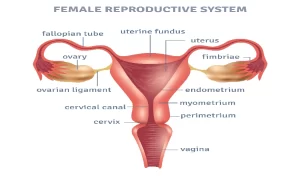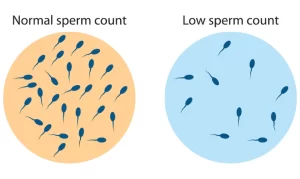Understanding IVF Treatment: A Detailed Overview
IVF, or In Vitro Fertilization, is a complex process where an egg is fertilized by sperm outside the body, typically in a laboratory. Once fertilization is successful, the resulting embryo is implanted into the woman’s uterus with the hope of achieving a pregnancy. IVF is often recommended for couples facing challenges such as blocked fallopian tubes, male infertility, endometriosis, or unexplained infertility. The process involves multiple stages, each requiring careful monitoring and medical expertise, which contribute to the overall cost.
The IVF Process Explained
Ovarian Stimulation
Role of Hormonal Injections The first step in the IVF process involves stimulating the ovaries to produce multiple eggs. This is achieved through the administration of hormonal injections over a period of 8 to 14 days. The cost of these medications can vary significantly based on the patient’s response to the treatment and the dosage required. On average, the cost of hormonal injections ranges from ₹50,000 to ₹1,00,000 per cycle.
Egg Retrieval
A Delicate Procedure Once the eggs have matured, they are retrieved from the ovaries using a needle guided by ultrasound. This procedure is typically performed under sedation or light anesthesia. The cost for egg retrieval is included in the overall IVF package, but any additional procedures or complications may incur extra charges.
Fertilization and Embryo Culture
In the Lab The retrieved eggs are then fertilized with sperm in a laboratory. If fertilization is successful, the embryos are cultured for several days before being assessed for quality. In some cases, advanced techniques like ICSI (Intracytoplasmic Sperm Injection) are used, where a single sperm is injected directly into the egg. The use of such advanced techniques can add to the overall cost of IVF.
Embryo Transfer
The Final Step The best quality embryo is selected and transferred to the uterus. This is a relatively simple procedure that doesn’t require anesthesia. The number of embryos transferred depends on various factors, including the patient’s age and the quality of the embryos. Any remaining embryos can be frozen for future use, which incurs an additional cost for freezing and storage.
Factors Influencing the Cost of IVF Treatment in India
The cost of IVF treatment in India is not standardized and can vary widely depending on several factors. Understanding these factors is crucial in estimating the total expenditure involved in the treatment.
Geographical Location
The location of the IVF clinic plays a significant role in determining the cost of treatment. IVF clinics in metropolitan cities like Mumbai, Delhi, and Bangalore generally charge higher fees compared to those in smaller towns and cities. This disparity is largely due to the higher cost of living, advanced infrastructure, and greater demand for fertility services in urban areas.
Clinic Reputation and Success RatesClinics with a high success rate and experienced fertility specialist often charge a premium for their services. These clinics invest in state-of-the-art technology, experienced staff, and comprehensive care, all of which contribute to higher costs. However, opting for a reputed clinic with a proven track record can increase the chances of a successful outcome, potentially saving money in the long run by reducing the need for multiple IVF cycles.
Type of IVF Treatment
The specific type of IVF treatment required also influences the cost. For instance:
Standard IVF:
This is the most common type of IVF treatment and involves the basic steps of egg retrieval, fertilization, and embryo transfer. The cost of standard IVF typically ranges from ₹1,50,000 to ₹2,50,000 per cycle.
Advanced Techniques:
Some patients may require advanced techniques like ICSI, where a single sperm is injected directly into the egg, or PGT (Preimplantation Genetic Testing) to screen embryos for genetic disorders. These techniques can add ₹50,000 to ₹1,00,000 to the total cost.
Donor Eggs or Sperm:
In cases where donor eggs or sperm are needed, the cost increases further. The use of donor eggs can add ₹1,00,000 to ₹2,00,000 to the overall cost, while donor sperm may add ₹20,000 to ₹30,000.
Medications and Hormonal Injections
Medications are a significant component of the IVF process and can vary widely in cost. Some patients may require higher doses of medications or additional drugs to stimulate egg production, which can increase the total cost of treatment. The average cost of medications and hormonal injections ranges from ₹50,000 to ₹1,00,000 per cycle, but it can be higher depending on individual needs.
Additional Procedures and Testing
Diagnostic Tests:
Before starting IVF, patients undergo various diagnostic tests, including blood tests, ultrasounds, and semen analysis. These tests can add an additional ₹15,000 to ₹30,000 to the total cost of treatment.
Embryo Freezing:
If you choose to freeze any unused embryos for future use, this service typically costs between ₹20,000 and ₹30,000. The storage fees for frozen embryos can range from ₹5,000 to ₹10,000 per year.
Assisted Hatching:
In some cases, a procedure called assisted hatching is recommended to improve the chances of implantation. This procedure can add another ₹10,000 to ₹20,000 to the total cost.
The Average Cost of IVF Treatment in India
Taking all these factors into account, the average cost of a single IVF cycle in India ranges from ₹2,00,000 to ₹3,00,000. However, it’s important to note that this is just the base cost. Additional expenses, such as those for advanced techniques, medications, and embryo freezing, can increase the total cost significantly.
IVF Success Rates and Financial Planning
While the cost of IVF treatment can be daunting, it’s crucial to consider the success rates and potential savings in the long run. Clinics with higher success rates may offer better value despite the higher upfront cost, as they reduce the likelihood of needing multiple cycles. Patients should also factor in the emotional and physical toll of repeated cycles when considering the cost.
Government Initiatives and Insurance Coverage
In recent years, the Indian government has started recognizing the importance of making fertility treatments more accessible. Some states offer financial assistance or subsidies for IVF treatment, and there is growing momentum for including infertility treatments under health insurance coverage. Currently, a few insurance companies offer policies that cover a portion of the IVF treatment cost. It’s advisable to explore these options to help alleviate the financial burden.
Conclusion
IVF treatment in India offers a lifeline to many couples struggling with infertility, but it comes with a significant financial commitment. Understanding the various factors that influence the cost of IVF, from the type of treatment to the reputation of the clinic, is essential for making informed decisions. By considering all aspects, including potential government assistance and insurance coverage, couples can better plan for their fertility journey.







